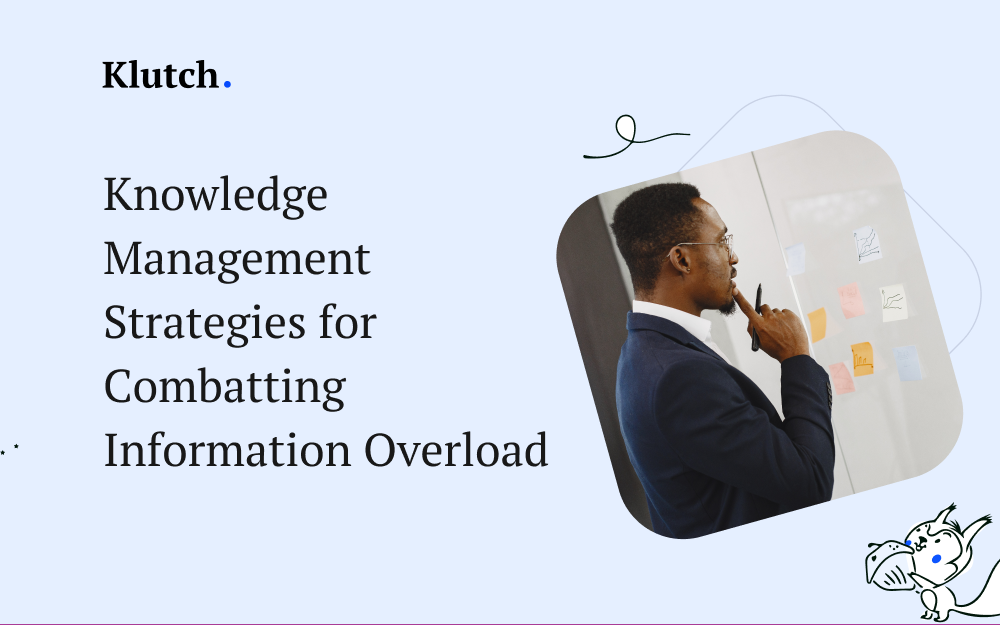The 21st century is inundated with information. From news alerts to email notifications, and social media updates to constant internet access, we are bombarded with data from multiple sources every waking moment. This phenomenon, known as information overload, has become a significant challenge for both individuals and organizations. It has significant consequences for individuals and organizations alike, impeding productivity, decision-making, and well-being.
Information overload occurs when the amount of information we receive exceeds our capacity to process it effectively. This can lead to:
- Cognitive overload: Difficulty concentrating, remembering, and making sound decisions.
- Stress and anxiety: Feeling overwhelmed and unable to cope with the constant influx of information.
- Reduced productivity: Time wasted on filtering information and struggling to find what’s relevant.
- Information paralysis: The inability to make decisions due to the abundance of conflicting information.
- Decision fatigue: Exhaustion from constantly evaluating and choosing between options.
Effective knowledge management offers a critical solution to combat information overload. In this article, we will explore the impact of information overload and discuss effective knowledge management strategies that can help individuals and organizations overcome the challenges of information overload and collaborate better.
What is Information Overload?
Information overload refers to a state in which an individual is exposed to more information than they can effectively process, understand, and utilize. This results in negative consequences such as stress, anxiety, impaired decision-making, and reduced productivity.
The world’s data is exploding. In 2020, we generated a staggering 64.2 zettabytes of information, and Statista predicts that by 2025, this figure will more than triple to 180 zettabytes.
With these figures, the possibility of information overload skyrocketing doesn’t seem farfetched.
Why?
Let’s look at the key aspects of information overload:
- Quantity: The sheer volume of information available exceeds an individual’s capacity to handle it. This can include text, images, audio, and video encountered through various channels like news, social media, email, and work documents.
- Complexity: The information may be difficult to understand or interpret due to its technical jargon, abstract concepts, or lack of organization.
- Relevance: Much of the information encountered may be irrelevant or unimportant to an individual’s specific needs, creating noise and hindering the processing of truly valuable information.
- Constant influx: The information flow is continuous and often unpredictable, leaving individuals feeling overwhelmed and unable to catch up.
To protect against the negative effects of information overload, it is crucial to employ systems and strategies that promote information sharing collaboratively.
Let’s look at some knowledge management strategies below.
Knowledge Management Strategies for Sharing and Collaboration
Establish a Central Hub for Knowledge
Having a central hub for information ensures that it isn’t scattered across individual desks, emails, or siloed databases. Instead, it’s neatly organized and readily accessible in one central location – reducing the stress that a single person might encounter when they search for information.
These dedicated platforms act as libraries, housing various knowledge assets like documents, manuals, procedures, best practices, and more. Think of them as wikis, knowledge bases, or internal databases specifically designed to store and manage organizational knowledge.
Also, knowledge repositories aren’t just static libraries. They thrive on user contributions and updates. This means that companies must cultivate a culture where employees feel empowered to share their expertise, whether it’s adding new information, updating existing content, or providing feedback.
The process of creating and maintaining effective knowledge repositories is ongoing. It requires continuous monitoring, adaptation, and improvement based on user feedback and changing needs.

Build a Culture of Openness
Knowledge thrives in environments where communication flows freely and information is readily shared. This means fostering a culture where employees feel comfortable asking questions, expressing their ideas, and contributing their expertise without fear of judgment or hierarchy. A workplace where colleagues openly discuss challenges, share successful practices, and learn from each other’s experiences is the ideal setting for knowledge to thrive. This open exchange of knowledge is the lifeblood of collaboration and innovation.
Collaboration isn’t just about sharing ideas over coffee; it requires purpose-built tools to facilitate teamwork and knowledge exchange.
For instance, within a company, an internal knowledge base or company wiki is crucial for effective collaboration.
An internal knowledge base can significantly boost knowledge sharing within an organization by eliminating the need for individual knowledge silos and creating a single point of reference for all relevant information.
This makes it easier for employees to find the information they need, regardless of their location or department. It also reduces redundant queries and wasted time searching for information through email chains or personal contacts.
Lastly, recognizing and rewarding employees who actively contribute their expertise sends a powerful message about the value of collaboration.
Implement Collaborative Tools and Platforms
Beyond simple information storage, effective knowledge management hinges on fostering active collaboration and knowledge exchange. This is where digital tools step in, serving as springboards for seamless dissemination and co-creation of valuable information within your organization.
The first step is to assess your organization’s needs and identify areas where collaborative tools and platforms can streamline knowledge exchange and boost teamwork.
Does your team favor real-time chat, video conferencing, or asynchronous forum discussions? Can the tools seamlessly integrate with existing project management systems and databases? Are your knowledge assets primarily documents, visuals, or a mix of formats?
Once you’ve chosen the right tools, it’s time to implement them and create dedicated spaces for team collaboration. This could involve:
- Project management platforms: These tools provide centralized task management, communication channels, and file-sharing capabilities, ensuring everyone is on the same page.
- Internal social networks: These tools encourage informal knowledge sharing and build team connections through virtual communities where employees can discuss, post questions, and share insights.
- Wikis or knowledge bases: Establish a single source of truth for organizational knowledge, allowing team members to contribute, edit, and access accurate information easily.
- Discussion forums: Facilitate in-depth knowledge exchange on specific topics through dedicated forum spaces where experts can share their knowledge and answer questions from colleagues.

Champion and Train Knowledge Champions
Knowledge champions aren’t born, they’re nurtured. Look for individuals who naturally embody the following qualities:
- Passion for knowledge: They possess a genuine interest in learning, sharing, and utilizing information within the organization.
- Strong communication skills: They can effectively articulate complex information and engage colleagues in knowledge-sharing conversations.
- Leadership potential: They inspire others to participate in knowledge management initiatives and lead by example.
- Technical savvy: They are comfortable navigating the organization’s knowledge repository and technology platforms.
- Relationship builder: They foster connections and build trust across teams and departments, facilitating knowledge exchange.
Once identified, these individuals require continuous growth and support. Provide champions with targeted training on knowledge management principles, effective communication techniques, and the use of relevant tools and platforms. Create communities of practice dedicated to knowledge management, where champions can network, share best practices, and support each other.
Promote Knowledge-Based Decision-Making
Knowledge-based decision-making is a deliberate approach that leverages the collective wisdom of an organization to inform choices. It’s about moving beyond gut feelings or intuition and harnessing the power of data, insights, and expertise.
It offers so many benefits for knowledge culture and collaboration among teammates.
By considering diverse perspectives and factual evidence, you can make more informed and accurate choices, leading to better outcomes.
Also, knowledge-based decisions are less prone to biases and errors, minimizing potential pitfalls and maximizing success. Sharing knowledge and expertise fosters a collaborative environment where diverse ideas can be explored, leading to innovative solutions.
More importantly, when decisions are demonstrably based on sound reasoning and evidence, it builds trust and confidence among stakeholders.
Wrapping Up
With the ever-increasing tide of information, effective knowledge management has become more crucial than ever. It stands as a formidable barrier against the debilitating effects of information overload, empowering individuals and organizations to navigate data with clarity and purpose.
By embracing these knowledge management strategies and adapting to the information landscape, organizations can unlock the full potential of their workforce, navigate the information deluge with confidence, and thrive in the ever-evolving digital age.



